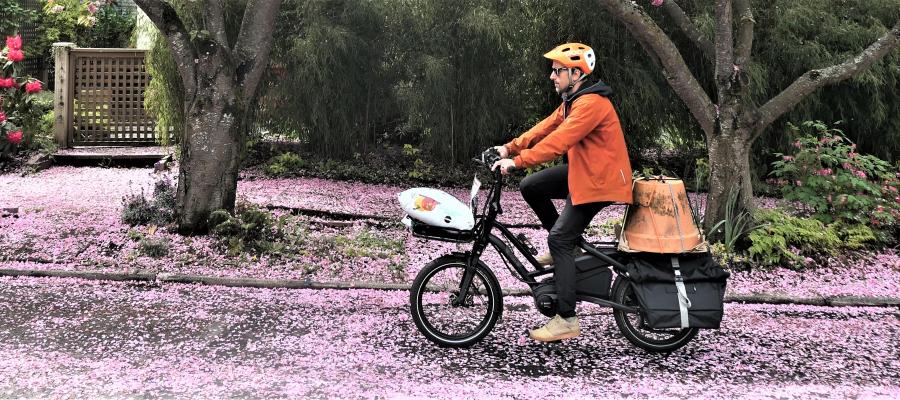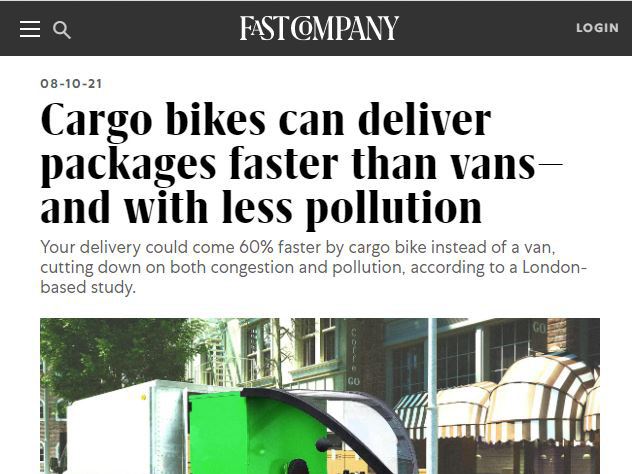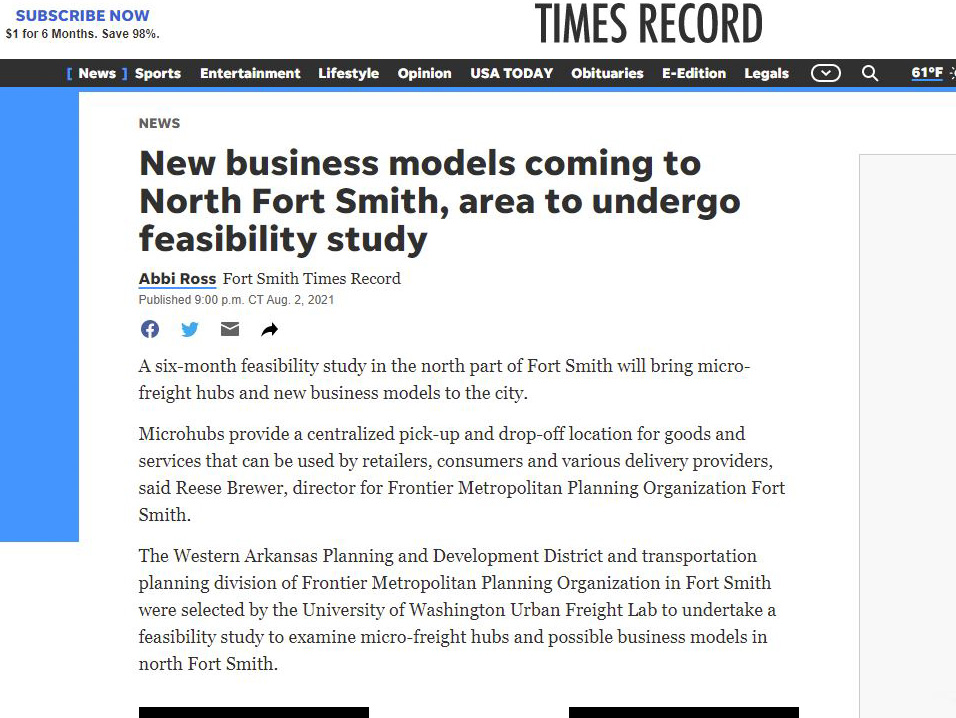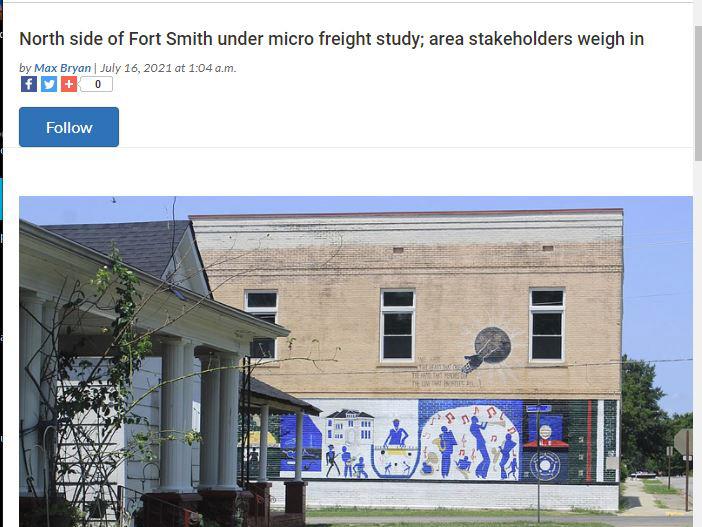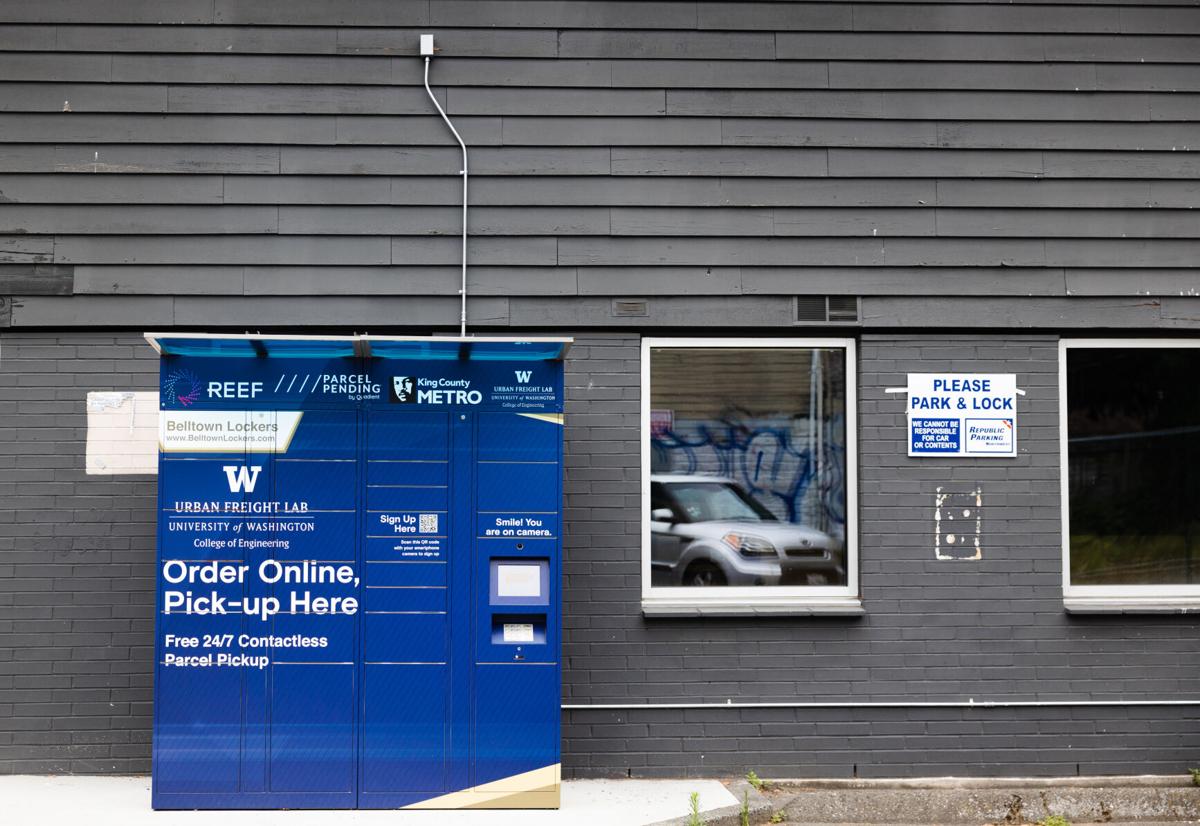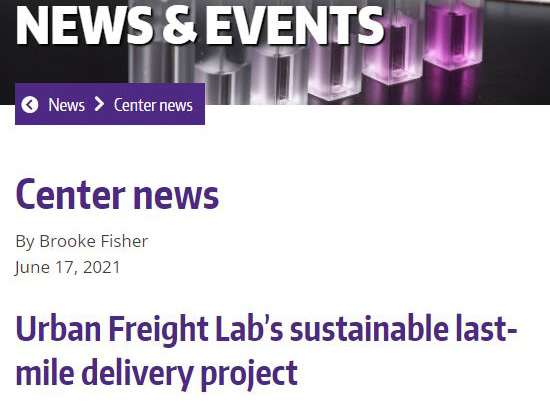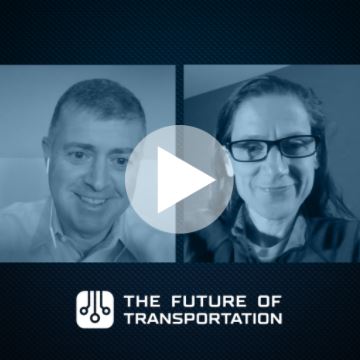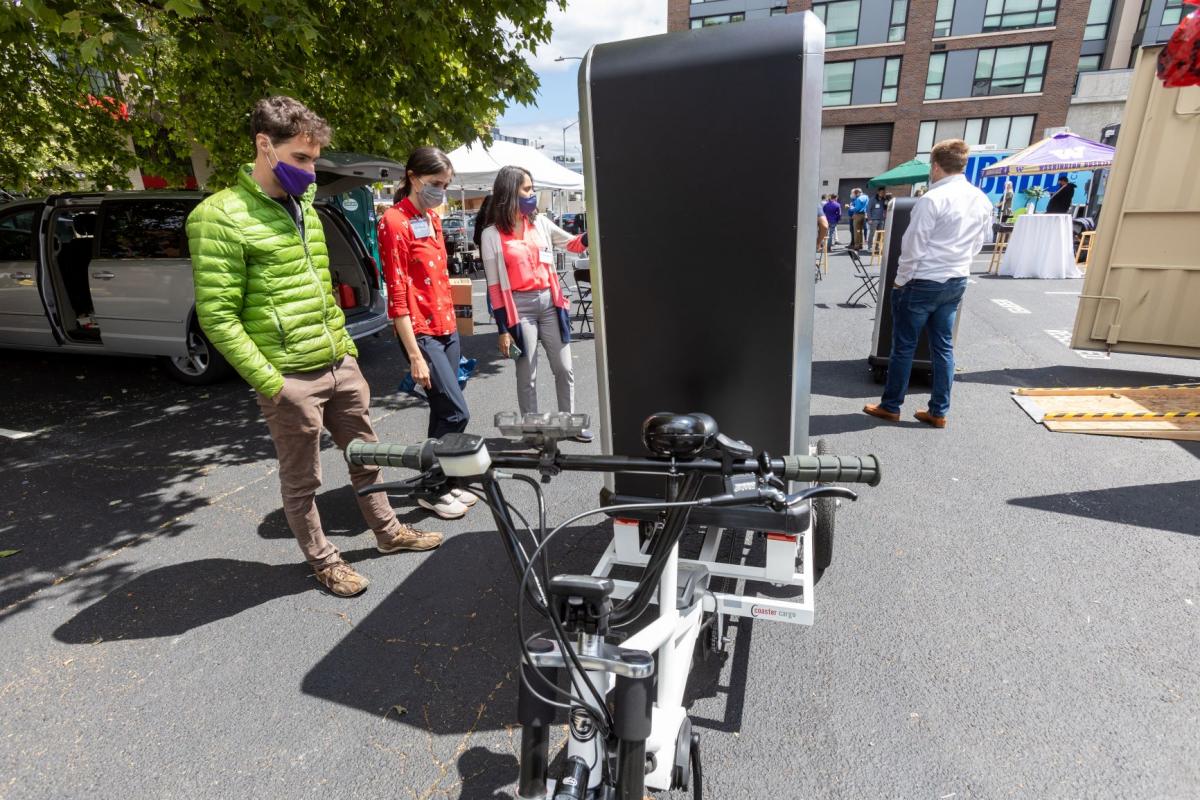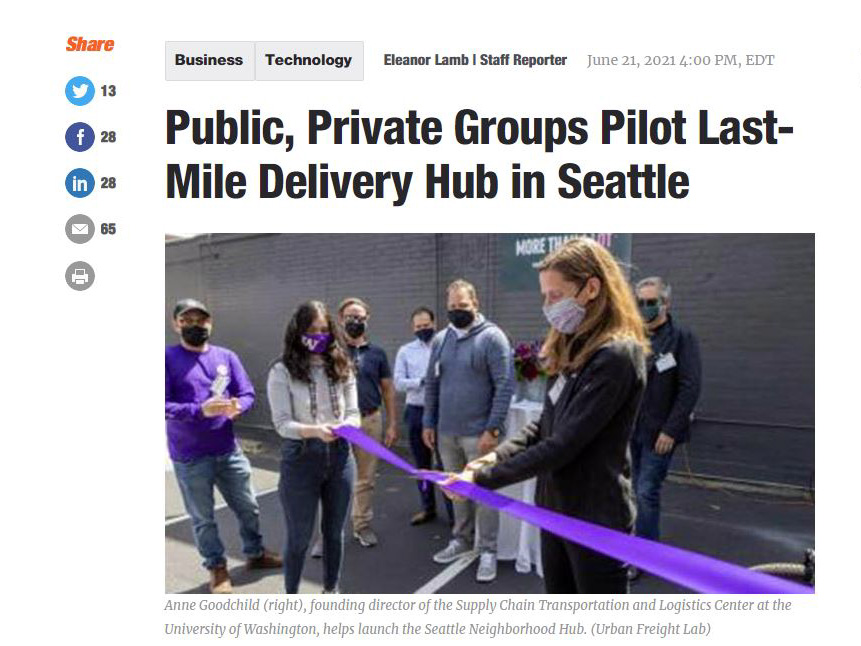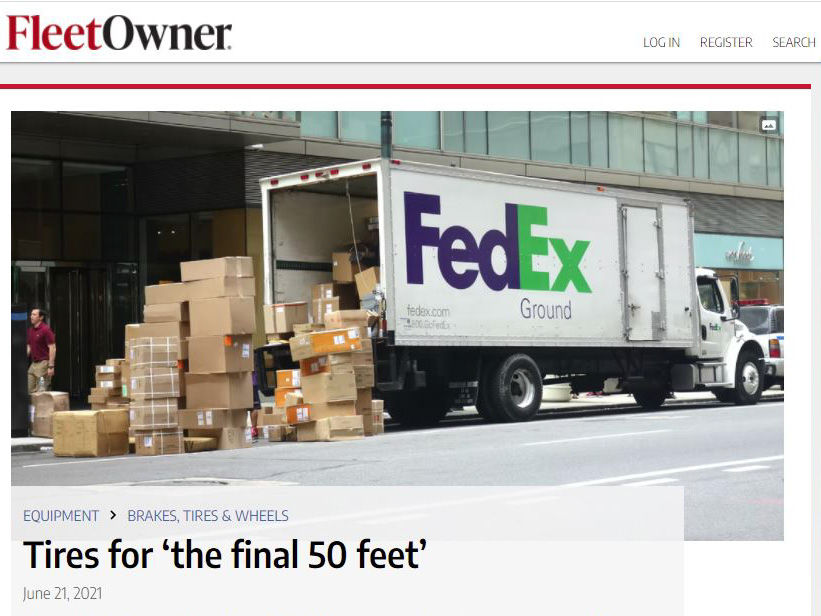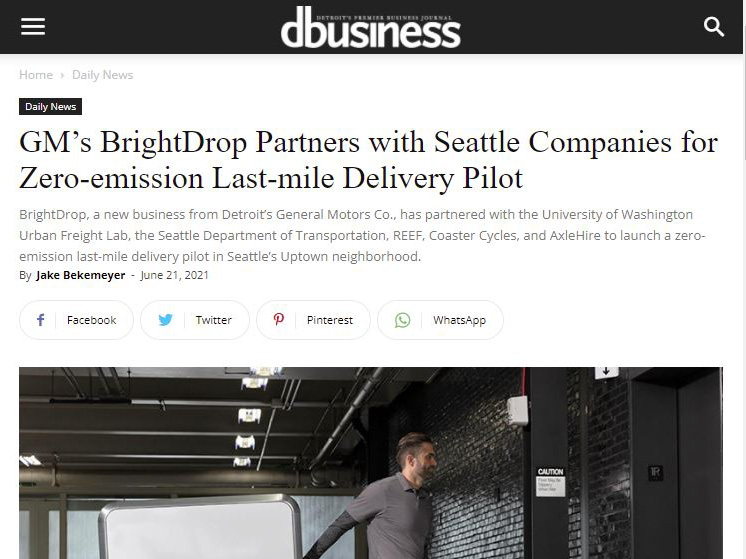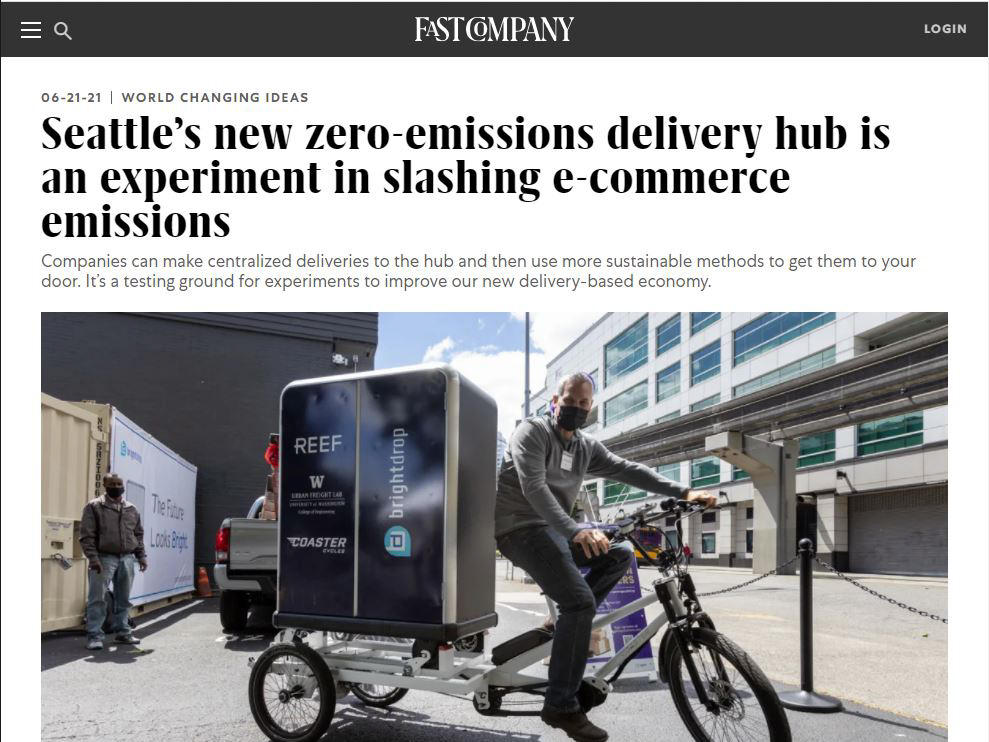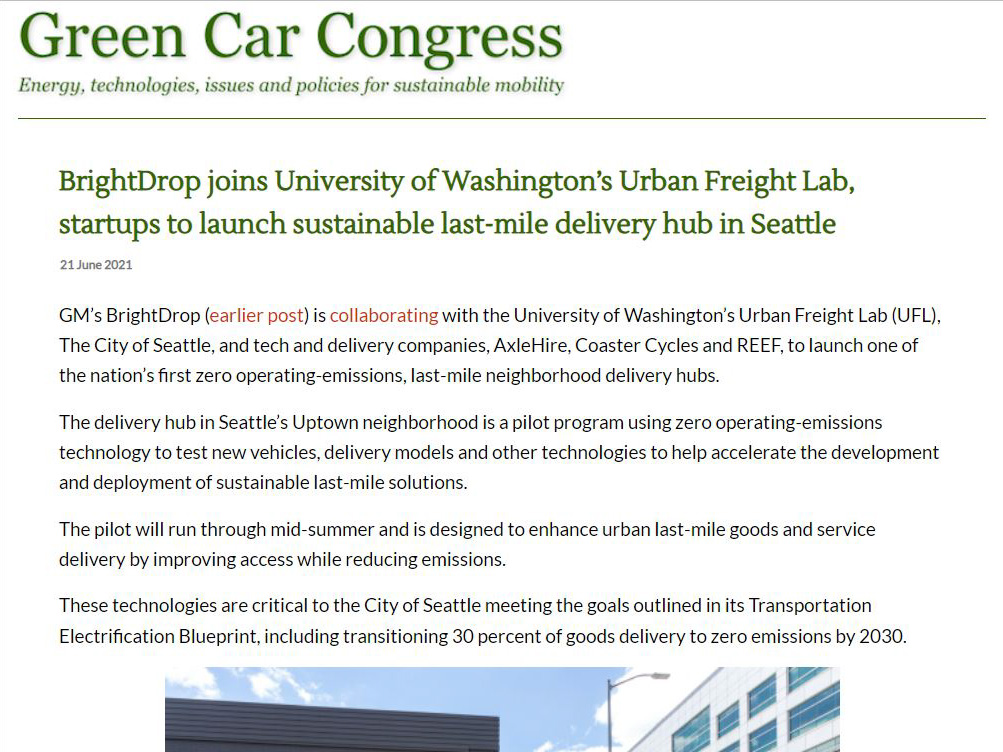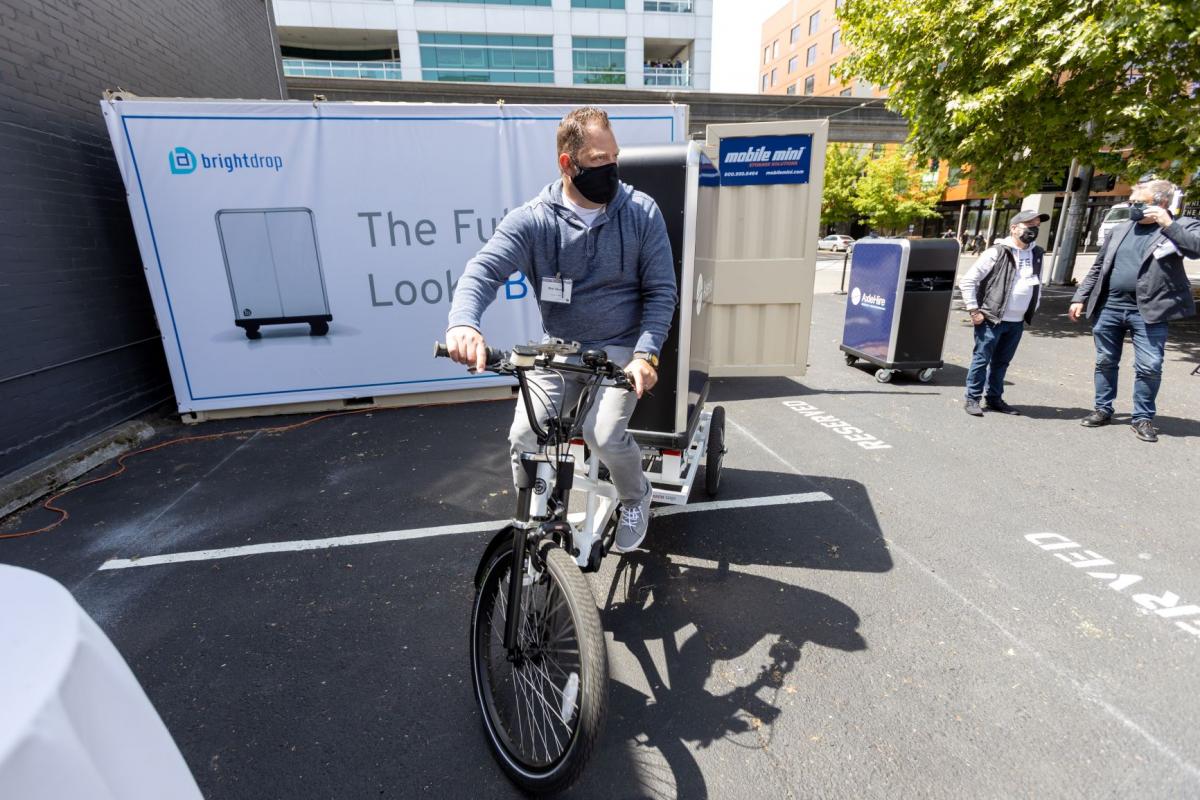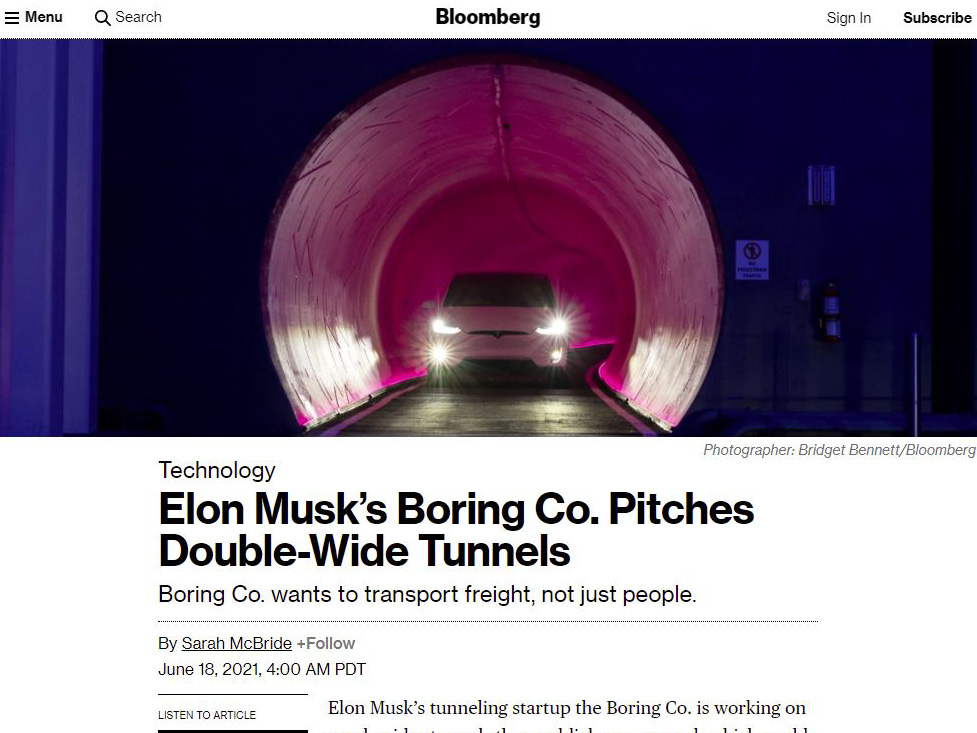In the Media
By Paul Tolme
As a lifelong bike lover who has survived many close calls with cars and reckless drivers, this quote from the cult classic movie “Repo Man,” has always made me laugh. “The more you drive,” Miller tells Otto while philosophizing over a trash can fire, “the less intelligent you are.”
When UPS tested electric cargo bikes in downtown Seattle, a study from the Urban Freight Lab found that even though delivery truck drivers spent around 50 minutes each day looking for parking, they were able to deliver more packages than cargo bikes on the same route.
The Western Arkansas Planning and Development District and transportation planning division of Frontier Metropolitan Planning Organization in Fort Smith were selected by the University of Washington Urban Freight Lab to undertake a feasibility study to examine micro-freight hubs and possible business models in north Fort Smith.
Frontier Metropolitan Planning Organization, the regional transportation planning organization for the Fort Smith area, was selected by the Urban Freight Lab as the recipient of a grant for services for the study. The city was chosen as a subject to determine whether micro-freight hubs could work outside of large metropolitan areas.
The Urban Freight Lab, an initiative of the UW’s Supply Chain Transportation and Logistics Center (SCTL Center), has launched a pilot microhub to make carbon-reduced deliveries around the Belltown neighborhood of Seattle. The hub will be home to a number of electric vehicles, cargo bikes, and a “ghost kitchen”.
The Urban Freight Lab has launched one of the nation’s first zero-emissions delivery pilots that focuses on the “last-mile” — when parcels are moved from a transportation hub to a final destination.
John Halpin’s guest for this episode is Dr. Anne Goodchild, founding director of the Supply Chain Transportation and Logistics Center at the University of Washington.
The Urban Freight Lab launched one of the nation’s first zero operating emissions, last-mile delivery pilots in the Uptown neighborhood of Seattle, in collaboration with the Seattle Department of Transportation and tech and delivery companies AxleHire, Coaster Cycles, BrightDrop and REEF.
The pilot, slated to run through midsummer, is taking place in Seattle’s Uptown neighborhood. Located between Elliott Bay and Lake Union, Uptown is home to the Space Needle. Anne Goodchild, founding director of the Supply Chain Transportation and Logistics Center, noted the area is highly constrained due to “hills and water all around.”
A recent report by the University of Washington Supply Chain Transportation & Logistics Center estimated that 25-50% of transportation supply chain costs are driven by the last phase of delivery, or the “final 50 feet”.
BrightDrop, a new business from Detroit’s General Motors Co., has partnered with the University of Washington Urban Freight Lab, the Seattle Department of Transportation, REEF, Coaster Cycles, and AxleHire to launch a zero-emission last-mile delivery pilot in Seattle’s Uptown neighborhood.
Anne Goodchild: “We could have a delivery system that is compatible with the way we want our communities to look, and feel, and sound, and run.”
BrightDrop Joins Urban Freight Lab, Startups to Launch Sustainable Last-mile Delivery Hub in Seattle
The delivery hub in Seattle’s Uptown neighborhood is a pilot program using zero operating-emissions technology to test new vehicles, delivery models and other technologies to help accelerate the development and deployment of sustainable last-mile solutions.
The delivery hub in Seattle’s Uptown neighborhood is a pilot program using zero operating-emissions technology to test new vehicles, delivery models and other technologies to help accelerate the development and deployment of sustainable last-mile solutions.
The proposal “is totally doable” from an engineering perspective, said Anne Goodchild, founding director of the Supply Chain Transportation & Logistics Center at the University of Washington.
